One hundred seventeen Fellows graduated from the Advance Security Cooperation (ASC) Course 19-2 Oct. 24, with broader perspectives and a newly developed common understanding of the challenges and opportunities to security in the region and enhanced networks of cooperation.
U.S. and international Fellows from 44 locations, including 27 women completed the five-week course. Dr. Bill Wieninger was the course manager and Dr. Sungmin Cho was the course coordinator.
ASC is an executive education program enabling mid- to senior-level military and civilian leaders to deepen their understanding of the complex security environment in the Indo-Pacific region.
The ASC 19-2 curriculum offered 22 plenary topical discussions that survey the regional strategic landscape and address key regional security issues such as maritime security, countering violent extremism, disaster response, regional security architecture and emerging technologies and 37 electives on topics like geopolitics, the media, environmental security, and women, peace and security. Through a series of exercises, which culminated in a simulated negotiation over a hypothetical crisis in the South China Sea, Fellows explored solutions to the challenging security issues of their region and applied in an engaged and practical way the knowledge and skills learned throughout the course.
The keynote speakers for ASC 19-2 were David F. Helvey, Principal Deputy Assistant Secretary of Defense for Indo-Pacific Security Affairs and Lt. Gen. Mike Minihan, deputy commander, U.S. Indo-Pacific Command.
The ASC course relied on a variety of learning formats ranging from lectures to small-group discussions to exercises. This combination and the participant-centered method enabled Fellows to learn effectively.
“I’ve been to several other courses like this before, but what I found unique here is that APCSS makes us feel to be part of a big family, where we share about our own cultures and we get to learn about other cultures,” explained Ms. Lailufar Yasmin, Professor of International Relations, Daka University, Bangladesh. “We learn about the differences, we are able to get rid of our preconceived ideas and biases. While we’re talking about security cooperation, if we cannot get rid of our biases, we cannot thrive, we cannot cooperate with each other. So this is something we learned in negotiation skills that was extremely valuable.”
Participants were from Bangladesh, Bhutan, Cambodia, Canada, Colombia, Fiji, India, Indonesia, Japan, Kiribati, Laos, Republic of Korea, Laos, Malaysia, Maldives, Marshall Islands, Micronesia, Moldova, Mongolia, Myanmar, Nauru, Nepal, Papua New Guinea, Philippines, Sri Lanka, Thailand, Timor-Leste, Tonga, Tuvalu, United States, Vanuatu, and Vietnam.
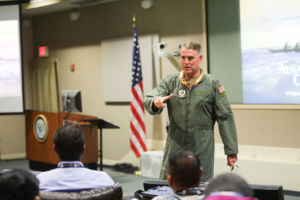
Lt. Gen. Mike Minihan, deputy commander, U.S. Indo-Pacific Command was a keynote speaker for ASC 19-2.
“The Fellows of ASC 19-2 connected superbly – as well or better than any course I have been a part of,” said course manager Dr. Bill Wieninger. “Moreover, they demonstrated a strong commitment to learning and a high degree of professionalism that culminated in an outstanding Capstone exercise on crisis negotiation. I was humbled by their dedication and effort over two and half hard days. They have a very bright future awaiting them.”
ASC is one of five formal courses at DKI APCSS. The Center is a Department of Defense institute that addresses regional and global security issues. Military and civilian representatives, most from the United States and Indo-Pacific nations, participate in a comprehensive program of executive education, professional exchanges and outreach events, both in Hawaii and throughout the Asia-Pacific region.
The Center supports U.S. Indo-Pacific Command by developing and sustaining relationships among security practitioners and national security establishments throughout the region. DKI APCSS’ mission is to build capacities and communities of interest by educating, connecting and empowering security practitioners to advance Asia-Pacific security. It is one of the Department of Defense’s five regional security studies centers.
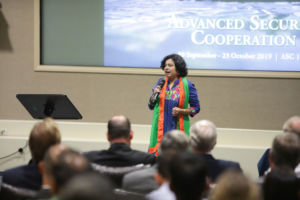
Figure 2: Prof. Lailufar Yasmin addresses ASC 19-2 at the Commencement Ceremony as the Fellow’s Representative.
Since opening in 1995, more than 13,095 alumni representing over 100 countries and territories have attended DKI APCSS courses and workshops.
For more photos, go to our Facebook page:



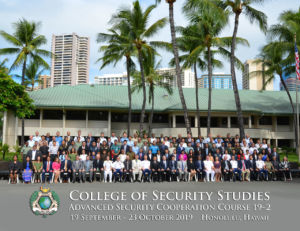
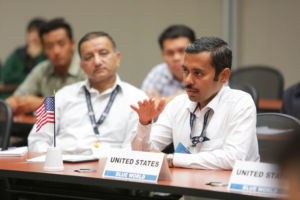
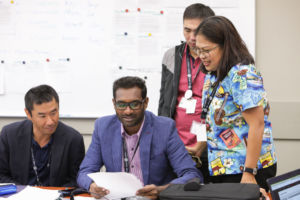
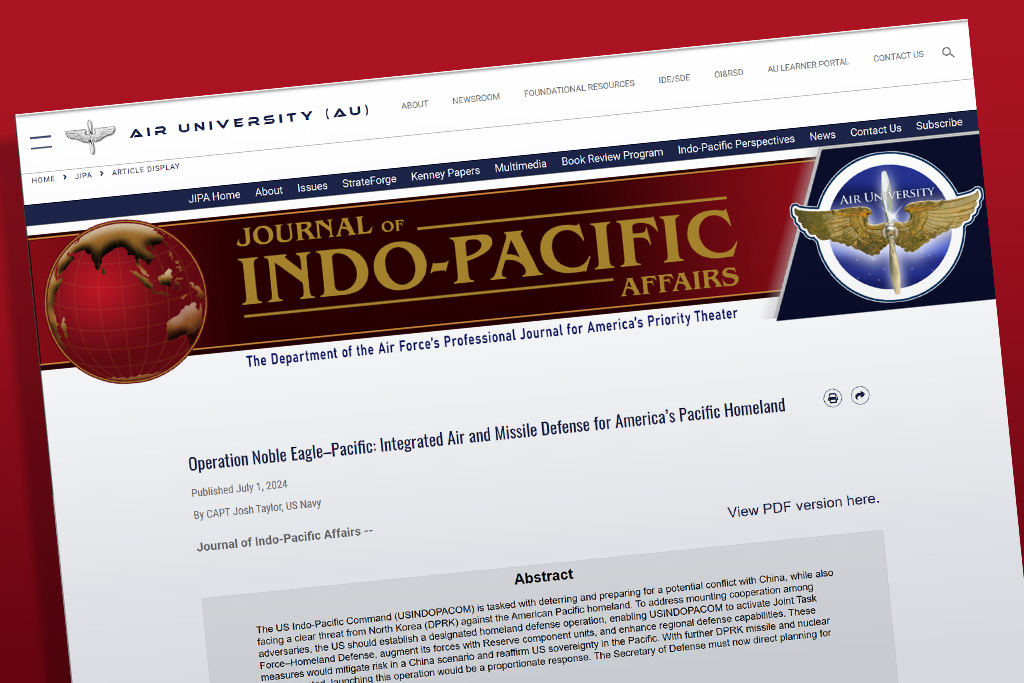
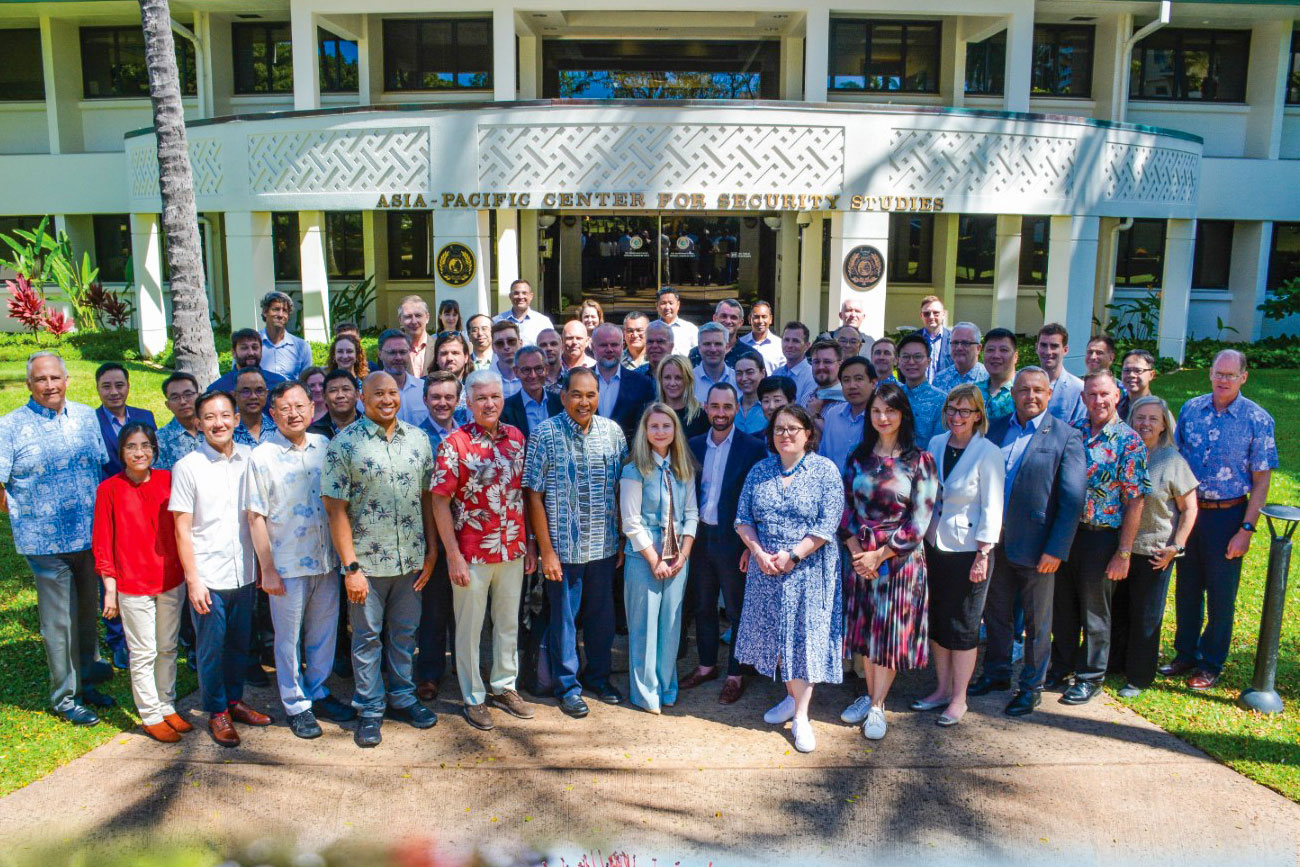





Leave A Comment